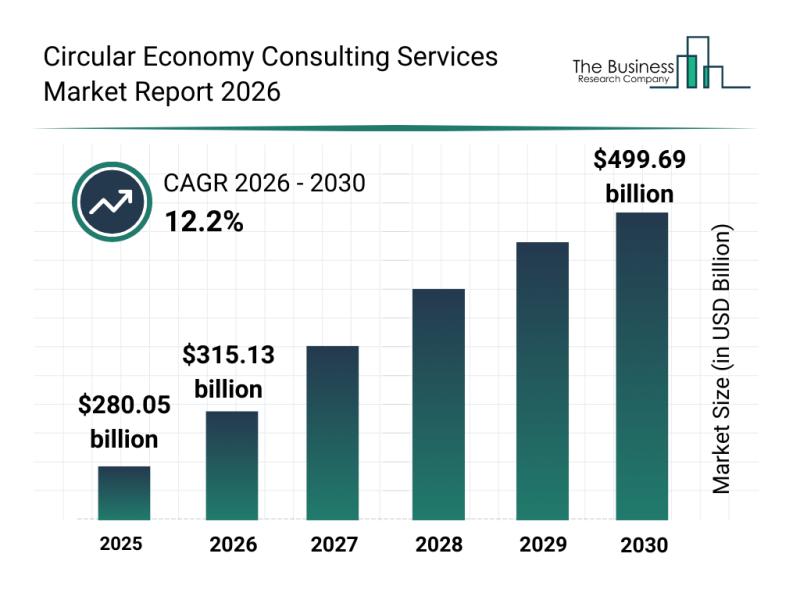Five New York women denied Denny’s service sue, charge racial discrimination – New York Daily News

Report on Alleged Racial Discrimination Incident and its Relation to Sustainable Development Goals
Executive Summary
This report details a federal civil rights lawsuit filed against a Denny’s restaurant in Bloomsburg, Pennsylvania. The case, initiated by five Black women, alleges racial discrimination, a direct contravention of key principles within the United Nations Sustainable Development Goals (SDGs), particularly SDG 10 (Reduced Inequalities) and SDG 16 (Peace, Justice and Strong Institutions). The incident and subsequent legal action highlight the ongoing challenges in eliminating discriminatory practices and ensuring equal access to services for all.
Incident Details
- Date: January 14, 2024
- Location: Denny’s restaurant, Bloomsburg, Pennsylvania.
- Parties Involved: Five plaintiffs: Daniella Bonhomme, Tatiana Poulard, Aminique Kirnon, Selina Sacasa, and Quantavia Grant.
- Initial Allegation: The plaintiffs allege they were denied service under the pretext of “electrical issues.”
- Contradictory Evidence: The lawsuit claims that upon entering the restaurant, the plaintiffs observed it to be fully operational, serving an exclusively white clientele. This observation was documented via video recording.
Legal Action and Alignment with SDG 16: Peace, Justice and Strong Institutions
A federal civil rights lawsuit has been filed, asserting that the plaintiffs were denied service due to their race. This legal recourse is a fundamental mechanism for achieving justice and accountability, core tenets of SDG 16.
- Violation of Civil Rights: The complaint lodged in the United States District Court, Middle District of Pennsylvania, states the women “were humiliatingly denied seating and service… simply because of the color of their skin.”
- Seeking Justice: The lawsuit exemplifies the application of Target 16.3 of the SDGs, which aims to “promote the rule of law… and ensure equal access to justice for all.” By utilizing the legal system, the plaintiffs seek to hold a corporate entity accountable for discriminatory practices.
- Emotional and Mental Impact: The complaint notes that the plaintiffs continue to suffer “severe mental anguish and emotional distress,” underscoring the human cost of inequality and the importance of strong institutions in protecting individual well-being.
Connection to SDG 10: Reduced Inequalities
The core of the lawsuit is the allegation of unequal treatment based on race, which directly challenges the objectives of SDG 10.
- Target 10.2: This target aims to “empower and promote the social, economic and political inclusion of all, irrespective of… race, ethnicity… or other status.” The alleged denial of service is a clear example of social and economic exclusion based on race.
- Target 10.3: This target calls for ensuring “equal opportunity and reduc[ing] inequalities of outcome, including by eliminating discriminatory… practices.” The lawsuit argues that the “flickering lights” were a pretext for a discriminatory practice.
- Historical Context: The Denny’s corporation has a history of similar allegations, including a $54 million settlement in 1994 related to widespread racial bias. This history indicates a persistent challenge in corporate adherence to the principles of equality and non-discrimination central to SDG 10.
Corporate Response and Accountability
The response from the Denny’s corporation has been noted in the legal complaint.
- A corporate vice president, Chioke Elmore, reportedly contacted plaintiff Aminique Kirnon and offered a free meal.
- The complaint frames this offer as an inadequate attempt to “wipe away the emotional distress from the harrowing violation of Plaintiffs’ civil rights.”
- This incident raises questions about corporate responsibility in actively promoting inclusive environments and providing meaningful redress for discriminatory acts, which is essential for sustainable and equitable economic growth as outlined in SDG 8 (Decent Work and Economic Growth).
1. Which SDGs are addressed or connected to the issues highlighted in the article?
The article on the alleged racial discrimination at a Denny’s restaurant connects to several Sustainable Development Goals (SDGs) that focus on equality, justice, and well-being.
-
SDG 10: Reduced Inequalities
This is the most prominent SDG in the article. The core issue is the alleged denial of service to five Black women “simply because of the color of their skin.” This directly addresses the goal of reducing inequalities within and among countries, particularly those based on race.
-
SDG 16: Peace, Justice and Strong Institutions
The women’s response to the incident, by filing a “federal civil rights lawsuit,” directly invokes the principles of this SDG. It highlights the need for equal access to justice for all and the role of institutions in holding entities accountable for discriminatory practices.
-
SDG 3: Good Health and Well-being
The article explicitly mentions the psychological impact of the incident on the women. The lawsuit alleges they “continue to suffer severe mental anguish and emotional distress,” including “depression, humiliation, embarrassment, stress and anxiety.” This connects the act of discrimination to negative health and well-being outcomes, a key concern of SDG 3.
2. What specific targets under those SDGs can be identified based on the article’s content?
Based on the specific details in the article, the following SDG targets are relevant:
-
Targets under SDG 10 (Reduced Inequalities)
- Target 10.2: “By 2030, empower and promote the social, economic and political inclusion of all, irrespective of age, sex, disability, race, ethnicity, origin, religion or economic or other status.” The article describes a clear case of social exclusion, where the five women were allegedly “humiliatingly denied seating and service” based on their race, while “white patrons were able to eat without issue.”
- Target 10.3: “Ensure equal opportunity and reduce inequalities of outcome, including by eliminating discriminatory laws, policies and practices and promoting appropriate legislation, policies and action in this regard.” The lawsuit aims to eliminate a discriminatory practice. The article also references Denny’s past history, including a “$54 million” settlement in 1994 for similar issues, and subsequent measures taken to “address practices,” which relates to corporate actions aimed at ensuring equal opportunity.
-
Targets under SDG 16 (Peace, Justice and Strong Institutions)
- Target 16.3: “Promote the rule of law at the national and international levels and ensure equal access to justice for all.” The women’s decision to file a “federal civil rights lawsuit” in the United States District Court is a direct application of this target, as they are using the legal system to seek justice for an alleged violation of their rights.
- Target 16.b: “Promote and enforce non-discriminatory laws and policies for sustainable development.” The lawsuit is an action to enforce existing non-discriminatory civil rights laws in the United States. The historical context provided about previous lawsuits and settlements against the restaurant chain further illustrates the ongoing effort to enforce these laws.
-
Target under SDG 3 (Good Health and Well-being)
- Target 3.4: “By 2030, reduce by one third premature mortality from non-communicable diseases through prevention and treatment and promote mental health and well-being.” The article’s description of the plaintiffs suffering from “severe mental anguish and emotional distress,” “depression,” and “anxiety” as a direct result of the discriminatory incident highlights the link between social injustices and mental health, which is a key component of this target.
3. Are there any indicators mentioned or implied in the article that can be used to measure progress towards the identified targets?
The article provides qualitative and case-specific information that can be seen as examples or instances of broader SDG indicators.
-
Indicators for SDG 10 & 16 (Targets 10.3 & 16.b)
The official indicator 10.3.1 / 16.b.1 is the “Proportion of population reporting having personally felt discriminated against or harassed in the previous 12 months on the basis of a ground of discrimination prohibited under international human rights law.” The experience of the five women who were “turned away from a Pennsylvania Denny’s” serves as a specific, documented account that would contribute to this indicator. The lawsuit itself is a formal report of discrimination.
-
Indicator for SDG 16 (Target 16.3)
While the article does not cite a specific statistical indicator, the filing of the “federal civil rights lawsuit” is a direct, tangible measure of access to justice. The number of civil rights cases filed and their outcomes (such as the “$54 million” settlement in 1994) can serve as indicators for measuring whether individuals and groups are able to use the legal system to address grievances and enforce their rights.
-
Indicator for SDG 3 (Target 3.4)
The article implies an indicator related to the mental health consequences of discrimination. The legal complaint’s detailed description of the plaintiffs’ suffering—”depression, humiliation, embarrassment, stress and anxiety, loss of self-esteem and self-confidence, and emotional pain and suffering”—provides qualitative evidence. This points to the need for indicators that measure the incidence of mental health conditions linked to experiences of discrimination and social exclusion.
4. Summary Table of SDGs, Targets, and Indicators
| SDGs | Targets | Indicators (as identified or implied in the article) |
|---|---|---|
| SDG 10: Reduced Inequalities |
10.2: Promote social, economic, and political inclusion of all, irrespective of race, ethnicity, etc.
10.3: Ensure equal opportunity and eliminate discriminatory practices. |
– A specific instance of five Black women being denied service while white patrons were served. – A documented history of racial discrimination allegations against the company, including a major settlement in 1994. |
| SDG 16: Peace, Justice and Strong Institutions |
16.3: Ensure equal access to justice for all.
16.b: Promote and enforce non-discriminatory laws and policies. |
– The filing of a “federal civil rights lawsuit” by the affected women, indicating access to and use of the justice system. – The historical precedent of a “$54 million” payment in a previous race-bias suit, indicating enforcement of non-discriminatory laws. |
| SDG 3: Good Health and Well-being | 3.4: Promote mental health and well-being. | – The reported “severe mental anguish and emotional distress,” including “depression, humiliation, embarrassment, stress and anxiety,” suffered by the plaintiffs as a direct result of the discriminatory act. |
Source: nydailynews.com
What is Your Reaction?
 Like
0
Like
0
 Dislike
0
Dislike
0
 Love
0
Love
0
 Funny
0
Funny
0
 Angry
0
Angry
0
 Sad
0
Sad
0
 Wow
0
Wow
0















































;Resize=620#)





























